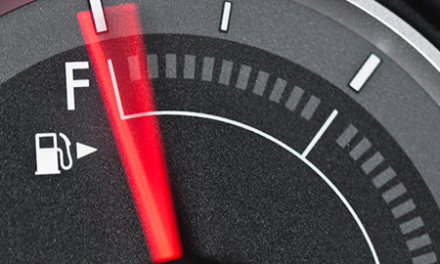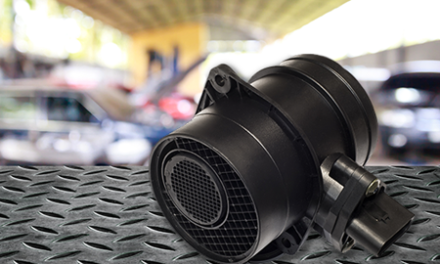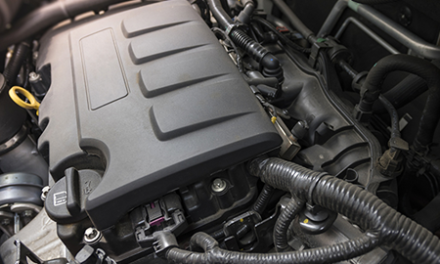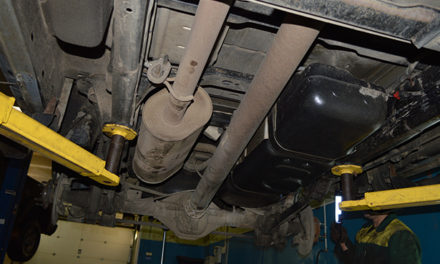When working on late-model vehicles, it’s typically quicker and easier to diagnose a fuel pump issue with a scan tool that has applicable data stream displays and bi-directional controls. With these kinds of features, a technician can rapidly evaluate a fuel pump’s electrical status and current performance by using the scanning tool to actually activate the pump.
Anti-Theft Disabling
In some cases, a fuel pump’s circuit may be temporarily disabled if the anti-theft system of a vehicle detects a defective or unauthorized key in the ignition switch. The scan tool may also be used for downloading trouble codes and data indicators if a car’s security system (or any other vehicle subsystem) has temporarily disabled the fuel pump as part of an anti-theft strategy.
Powertrain Control Module (PCM)
A scan tool also comes in handy when diagnosing a pulse-modulated fuel pump system. Because pulse-modulated systems are a complex story in and of themselves, it would be tough to illustrate and explain them thoroughly in this context. However, the Powertrain Control Module (PCM) tailors and regulates fuel pump pressure. It does this in order to meet a variety of operating conditions by controlling the fuel pump speed and pulsing an electrical current into the pump. If the pulse width requirements ever exceed normal parameters, the PCM has a fuel pump diagnostic trouble code stored within it that will appear during the scan.
Fuel Pump Electrical Issues
If power is available at the vehicle’s fuel pump, the technician should inspect the fuel tank electrical connector to see whether it is loose or has any burnt connector pins. Connectors burned by an excessive amperage draw as a result of a defective fuel pump very often cause multiple fuel pump failures. If the pump’s circuit is grounded to the frame, you can perform preventive maintenance to the system. This is done by cleaning the connector and frame and then applying an anti-corrosion compound directly to the connection.
Primary Causes of Improper Fuel Pump Operation and Failure
- Corrosion, rust, buildup or other types of contamination within the vehicle fuel tank
- Faulty fuel pump connectors or wiring
- Plugged or clogged strainers and/or fuel filters
A scan tool aids in facilitating the accurate diagnosis of fuel pump problems so that they can be correctly resolved.










![[Vehicle Fitment-1]: Compatible with Chrysler 200 2011-2014, Sebring 2007-2010, L4 2.4L; Compatible with Dodge Avenger 2008-2014, Caliber 2007-2012, L4 2.0L/2.4L, Journey 2009-2015 L4 2.4L [Vehicle Fitment-2]: Compatible with Jeep Compass 2007-2017, ...](https://m.media-amazon.com/images/I/41rHvMw6ycL._SL100_.jpg)



![✨️[IMPORTANT NOTE] Please check fuel pump assembly part finder or OEM number for the right compatibility before purchase. ✨[FITMENT] Compatible with 2008 2009 2010 2011 2012 2013 2014 Scion xD L4 1.8L;2006 2007 2008 2009 2010 2011 2012 2013 2014 2015...](https://m.media-amazon.com/images/I/310NYpEhUYL._SL100_.jpg)
